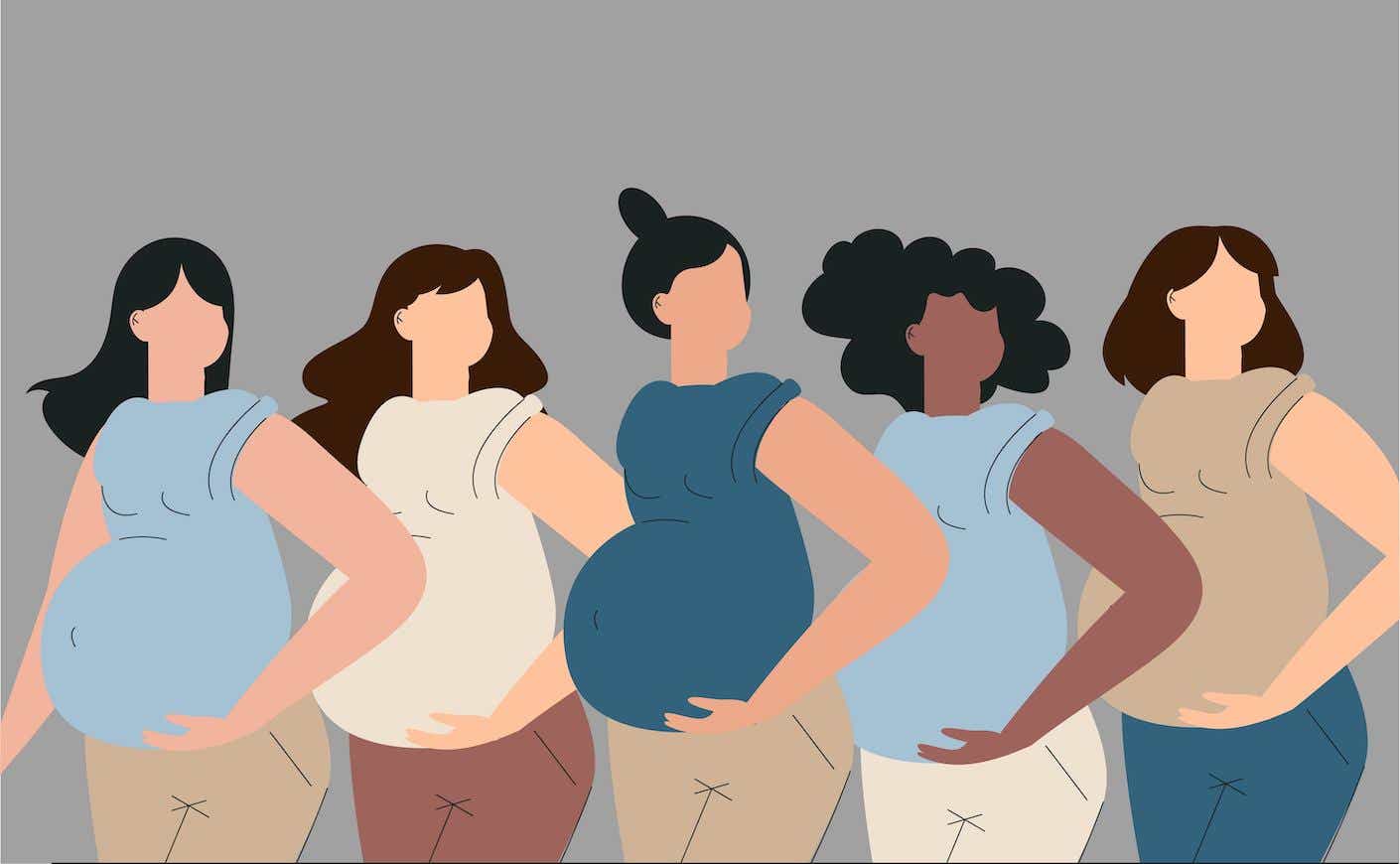For many women, a surprise pregnancy can be a source of limitless joy and excitement. For others, it can feel like a prison sentence — especially at a time when reproductive rights are under grave attack, and women could soon have severely limited agency in determining whether or not they want to carry a pregnancy to term.
But what people often miss in this conversation is that it’s not just about whether or not someone feels emotionally ready to have a child. It’s also about whether or not they’re able to take on the unimaginable costs of giving birth in America.
The most expensive countries in the world for childbirth are the United States and Japan, according to Parents.com. In other words, before a parent even considers the financial gymnastics of affording to raise a child, they might already be in the red by thousands of dollars — for some, tens of thousands of dollars — just from giving birth.
So how much does it cost, exactly, to deliver a baby?
Giving birth without total health care coverage could cost you more than $30,000
Let’s start with the cost of childbirth without health insurance.
In 2020, CBS News broke down the average bill a person might receive after experiencing a vaginal birth with zero medical complications, if their health insurance didn’t cover any of the cost, or if they didn’t have relevant health insurance to begin with. Here’s a quick breakdown of childbirth costs in 10 states:
California: $26,280
Georgia: $14,776
Iowa: $10,487
Massachusetts: $14,063
Nebraska: $8,805
New Jersey: $29,048
North Carolina: $12,910
Oregon: $15,121
Again, these costs are what you would pay if, for some reason, health care coverage wasn’t in the mix. To put these numbers into context, the average family household had a median savings balance of $5,300 in their bank account, and an average balance of $41,600, as of 2019. For many of these families, the cost of giving birth could send them into medical debt.
For those who qualify for Medicaid, the majority of your costs should be covered, but states have leeway to dictate what is covered as a necessary pregnancy cost. For example, not all states require Medicaid coverage to include genetic counseling.
So how much does private health insurance offset these costs, on average?
The average insured person still pays thousands out of pocket for childbirth
Unlike what most people might think, even having a great health insurance plan doesn’t mean you’re going to get your childbirth costs completely covered. In 2021, a study conducted at the University of Michigan revealed that one in six families spent over $5,000 in hospital costs related to childbirth. For insured parents whose child spent time in a neonatal intensive care unit, those hospital bills ballooned to over $10,000 in certain cases. This is after health insurance covered some portion of the costs.
According to this study, which analyzed data of more than 12 million privately insured people across the country, the average out-of-pocket cost for childbirth in a hospital setting was $3,068.
Keep in mind that this bill comes on top of so many other bills parents face during this time period. From buying all the relevant baby accessories, like diapers and cribs, to taking time away from work that’s often underpaid or entirely unpaid, the costs of giving birth in America are staggering.
Alina Salganicoff, a senior vice president and director of Women’s Health Policy for the Kaiser Family Foundation, explained how these costs impact mothers directly: “A lot of pregnancies are unplanned,” she said. “It’s hard to save up this money, and three in 10 women who have private insurance are low-income. That is incomes below 200% of the poverty level. Saving up $1,000, $2,000, $3,000, $4,000…it’s not a possibility for these families.”
This is one of many reasons why medical debt is the number one cause of bankruptcy in the United States.
Do mothers who choose to give their babies up for adoption get their hospital costs covered?
If a woman decides to give her child up for adoption, then certain aspects of her childbirth costs will be covered. According to the Adoption Network, a birth parent can always apply for Medicaid, if they don’t have health insurance, which would cover the majority of the costs of giving birth.
It’s also common for the adoptive parents to assist with the birth mother’s expenses, including hospital costs, rent, food, maternity clothing, and more. However, there’s no hard and fast rule on this policy.
It’s worth noting that many women consider adoption only after they’ve found out they’re already pregnant. If they weren’t planning to have a child, and don’t have the financial means to support a baby, they might be facing an important, and often seemingly impossible decision: To become a parent and potentially face crippling financial consequences; to abort the pregnancy, which might soon be outlawed in dozens of states; or to give their child up for adoption, at which point they could attempt to find a family that covers as much of their costs as possible.
For those who move through the birthing system, it’s evident that the United States offers extremely little in terms of comprehensive support for parents. Future limitations to reproductive rights will only emphasize the unsustainable cost of having a child in America, especially when you consider that the majority of American households have barely enough in their bank accounts to cover the healthcare costs of childbirth alone.













